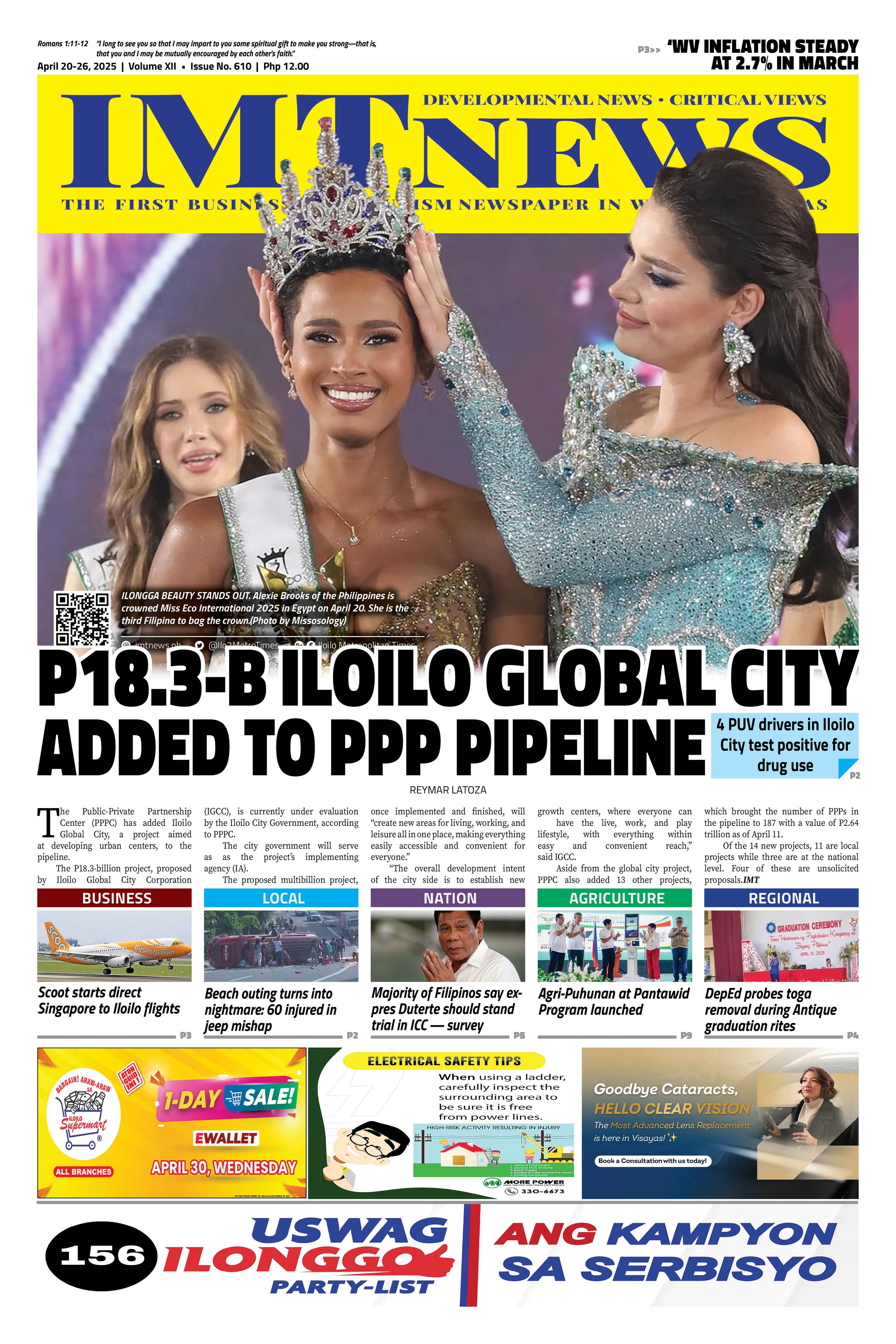Two national government agencies marked their first direct partnership during President Rodrigo R. Duterte’s recent visit in Sagay, Negros Occidental to distribute 3,434 Certificate of Land Ownership Award (CLOAs) to 2,495 agrarian reform beneficiaries (ARBs).
“I and Secretary John Castriciones of the Department of Agrarian Reform (DAR) signed a memorandum of agreement last month. The agreement stipulates that wherever DAR would distribute land titles to agrarian reform beneficiaries, DA would come,” said agri chief Emmanuel F. Piñol.
While DAR through President Duterte granted CLOAs to Negros Occidental ARBs, DA, on the other hand, turned over P10 million Production Loan Easy Access (PLEA) fund to the ARB community.
Moreover, one unit of mini four-wheel drive tractor, 120 kilograms of assorted vegetable seeds from the DA-Bureau of Plant Industry, planting materials of high value crops, forage and pasture, as well as drugs and biologics were given to ARBs.
“One unit of tractor would not change the lives of the farmers in this area but it is a start of a bigger collaborative endeavor between DA and DAR,” Piñol said.
DA will provide loaning program, livelihood and irrigation support to ARBs. As agreed during the DA internal budget hearing on March 7, the agency, using the Rice Competitiveness Enhancement Fund, will prioritize the distribution of farm equipment to irrigators’ associations, SWISAs, and ARBs.
“They are not being left out. We will not even think of them as ARBs. We will think of them as farmers needing support from the Department of Agriculture,” said Piñol who went on saying that more agri projects will be poured out soon to the sector.
On that same day, the DA-Philippine Crop Insurance Corporation president Jovy C. Bernabe and DAR Secretary Castriciones signed an agreement for the provision of P1 billion crop insurance coverage to ARBs nationwide.
“We are filling the void that was unfilled for so long. In many instances in the past, agrarian reform programs actually, if not failed, did not really achieve its targeted accomplishments. Mainly because of the lack of support from other government agencies like ours,” the agri chief pointed out.
Piñol expressed his opposition to the call of a member of the economic team for the deregulation of the country’s sugar industry.
Piñol, as he is supposed to do, promised to implement the policy whatever the government and policymakers’ stand on the issue.
But he stressed that economic benefits should be weighed against the social cause. “Eighty percent of the sugar farmers are ARBs who will be directly affected by the deregulation. ARBs are vulnerable to recruitment, are we ready for that?
They (ARBs) are first-time landowners who have been dreaming all of these years to own a piece of land to plant sugarcane and suddenly, you will wipe out that dream,” he said.
DA secretary rather supports the sugar stakeholders’ stand to review the Sugar Industry Development Act (SIDA) which remained inaccessible for years.
“SIDA’sfund loaning program has only one percent access rate that is why we need to review the SIDA,” added Piñol who went on sharing that the sugar stakeholders asked for the formulation of national sugar industry road map to enable the industry’s competitiveness.
As reported during the recent national summit of sugar stakeholders, a sugarcane farm in Negros Oriental which utilized irrigation was harvesting over 140 metric tons per hectare which is higher than the national average production of 54 metric tons per hectare.
“If we are able to improve our farming practices by using modern technologies like solar irrigation and fertigation, I believe the sugar industry will become competitive,” said Piñol who also shared that an Israeli irrigation company has recently volunteered to put up model farms in the country using drip irrigation. ### (Written by: James Earl E. Ogatis and Sheila Mae H. Toreno/DA-RAFIS 6)







